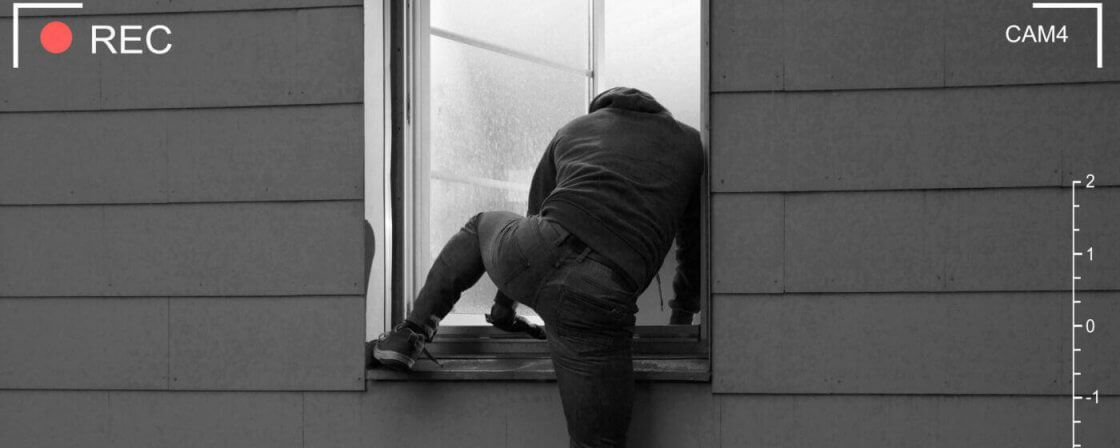Natural person as perpetrator of a criminal offence
According to the Criminal Code, the perpetrator of a criminal offence is the person who, by his or her conduct, has fulfilled the elements of the offence or the preparation and attempt to commit the offence, if it is punishable.
A so-called indirect perpetrator may be one who has used another person to carry out the act who is not criminally liable because of lack of age, insanity or other circumstances precluding illegality, or where the other person has acted in error. This might be the case, for example, if I tell a child to secretly bring me a wallet from another table in a restaurant and then keep that wallet. That makes me an indirect perpetrator.
Since 2012, our legal system has also introduced criminal liability for legal persons. Here, the condition is that a certain (natural) person has acted unlawfully in the interest of that legal person or in the course of its business. As a rule, this is a member of the management or a member of the statutory body. You can find out more about how the punishment of legal persons takes place in our next article.
Are you solving a similar problem?
Are you dealing with a legal problem in connection with a criminal proceeding?
Looking for an answer to a specific legal question? Email us and you will have an answer from one of our attorneys within 48 hours. We have specialists in all areas of law and guarantee a high level of expertise.
I want legal advice
- When you order, you know what you will get and how much it will cost.
- We handle everything online or in person at one of our 6 offices.
- We handle 8 out of 10 requests within 2 working days.
- We have specialists for every field of law.
The perpetrator can generally be
- a natural person,
- who is of sound mind and
- has reached the age of fifteen.
In the case of certain offences, he or she must meet additional conditions (for example, only an official or a soldier may commit the offence of abuse of authority or breach of official duty).
Tort capacity
In order to be a perpetrator of a criminal offence, a person must bear legal responsibility, which depends on his or her tort capacity. This consists, in the case of a natural person, in his capacity to recognise that his conduct is unlawful or harmful and his capacity to control that conduct. This depends in particular on his state of mind (sanity) and mental capacity (age, mental disability, etc.). The same applies to the tort capacity of legal persons.
Sanity of the offender
Only a person of sound mind can be an offender. If this is not the case, there is not necessarily insanity in the general sense, i.e. in the sense of some mental disorder or limitation of capacity (formerly referred to as legal capacity). It may be a momentary state of seconds or minutes, caused, for example, by an epileptic seizure. Insanity can also be long-term, caused for example by schizophrenia, other illness or mental disorder.
The definition of insanity under the law contains three basic features:
- mental disorder of the offender,
- which has occurred or continued at the time of the offence,
- and resulting in an inability to recognize the wrongfulness of the act or an inability to control the act.
Sanity or insanity must be assessed by a forensic expert. If a situation arises where an insane offender commits, for example, an act of violence against another person or even murder, but cannot be convicted because of his or her insanity, it is appropriate to consider and, if appropriate, impose protective treatment in order to protect the public.
Sometimes, however, the voluntary and intellectual faculties are diminished, but we cannot say that they have disappeared or that they are not there. But in such a case the court may declare the offender to be of diminished capacity.
Tip for article
In the case of criminal offences, we may encounter a situation where the offender’s conduct fulfils all the elements that the law presupposes for the offence in question, and yet the offence is not or cannot be punished in any way because too much time has elapsed since its commission. We are talking about the statute of limitations on the offence. You can read exactly how it works in our article.
Age of offender and juvenile offenders
The Criminal Code requires a minimum age of 15 years for offenders. In the past, legislators have flirted with the idea of lowering the age of criminal responsibility several times in response to various cases committed by children, but ultimately no change was made.
However, the low age of the offender plays a special role in criminal proceedings. An offender aged 15-18 is considered a juvenile (the law also recognises the concept of committing an offence at an age close to the age of juveniles, which is a mitigating circumstance). The criminal liability and punishment of juveniles is regulated by a special law, according to which juvenile offences are called misdemeanours. The criminal liability of juveniles is also always conditional on their intellectual and moral maturity, which must be assessed by the court.
In order to constitute an offence for which a juvenile should be prosecuted or convicted, the offence must be of a degree of seriousness greater than minor. Juveniles are more protected in the process than adult offenders.
They are subject to the obligation to provide a defence until their 18th birthday. Under the law, juvenile criminal cases are heard by juvenile courts, i.e. by judges specially trained in these matters (similarly, other law enforcement agencies with whom juveniles come into contact should receive special training). In the framework of the proceedings, more emphasis is placed on cooperation with the authorities for the social and legal protection of children, the Probation and Mediation Service or other persons carrying out probation supervision, and its educational and preventive purpose should be pursued.
The fundamental difference with the punishment of adult offenders is the punishment itself, i.e. educational measures, protective measures and punitive measures in the case of juveniles.
Educational measures are primarily intended to influence and direct the life of the juvenile. These are:
- supervision by a probation officer (who may, for example, visit the juvenile in his or her home),
- a probation programme,
- educational restrictions,
- admonition with warning.
The protective measures are intended to affect the moral and mental development of the juvenile. These include:
- protective treatment – e.g. psychiatric, drug, alcohol or sexological treatment,
- protective detention – a detention centre for children or juveniles is something like protective treatment, but is administered by the prison service,
- seizure of property (or other assets) – this is mainly things that have been obtained through criminal activity or that have been obtained through a crime,
- protective education – takes place in special institutions for juveniles. It is imposed when upbringing in the biological family or other existing environment does not provide a guarantee of proper development.
Punitive measures:
- community service,
- a financial measure (or a suspended financial measure) – provided that the juvenile is gainfully employed or his/her financial circumstances allow it,
- confiscation of property or other assets – may be imposed if the property was used or intended to be used in the commission of the offence,
- a prohibition of activity – unless the prohibition interferes with the preparation for the juvenile’s profession,
- a prohibition on keeping and breeding animals,
- deportation – can only be imposed on foreigners who do not have family in the Czech Republic and do not have asylum here,
- house arrest – imposed on juveniles under similar conditions as adult offenders, but for a maximum of one year,
- a ban on entry to sporting, cultural and other social events,
- imprisonment suspended for a probationary period with supervision – this is similar to a suspended sentence for adults,
- unconditionalimprisonment – this is a very exceptional measure, which can only be imposed where no other measure would achieve the purpose of the law, i.e. in particular to reform the juvenile. The penal rates are halved compared to adults. Only in cases where an adult offender could be given an exceptional sentence may a measure of imprisonment be imposed on a juvenile for up to 10 years. The execution of the sentence (punitive measure) is also carried out separately, usually in special prisons for juveniles.
Offender vs. accused
In the course of criminal proceedings, the offender may be referred to by other terms such as suspect, accused, defendant or convicted. They are still the same person. It depends only on what evidence is gathered and how the proceedings proceed.
- A person maybe a suspect from the time the suspicion is communicated until the time the application for punishment is submitted to the court. The Code of Criminal Procedure also uses the term to refer to a person who can be arrested because, for example, he has been caught committing a crime.
- The accused is the person concerned at the point where criminal proceedings are initiated against him.
- The accused becomes the accused when the main trial is ordered and remains so until the end of the trial.
- The defendant becomesthe convicted person at the moment the judgment of conviction becomes final.
Tip for article
If you are interested in the overall course of criminal proceedings, we recommend you to read our article.
Summary
The perpetrator of a criminal offence may be a natural person over 15 years of age who is of sound mind, or a legal person if the act is committed by the natural person in its interest. An indirect perpetrator is one who uses a person who is not criminally responsible to commit a criminal offence. Persons who are insane cannot be prosecuted, but may be subject to protective treatment. Juveniles (15-18 years old) have a special liability regime and lighter penalties, including educational and protective measures. Imprisonment may be imposed only exceptionally.




